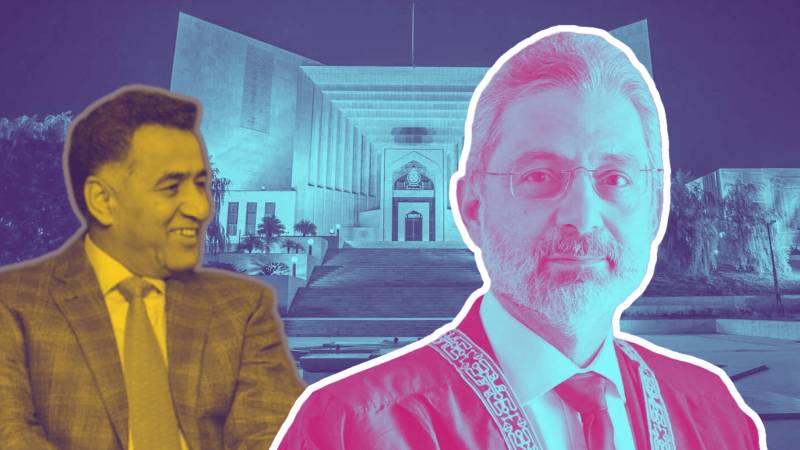
Without naming former director general of the Inter-Services Intelligence (ISI) Lt General Faiz Hameed, the Supreme Court on Saturday expressed anger that the Faizabad Dharna Inquiry Commission had gone out of its way, and mandate to insist that a particular person had done nothing wrong by relying on his paper denial, while discounting the testimony on oath against him by others.
"And it did so without providing an opportunity for cross-examination. It also did not explain why it preferred the statement of one against the testimony of the other," the top court observed in its short, four-page written order. A three-judge bench, headed by Chief Justice Qazi Faez Isa, had heard the case on May 6.
"Demonstrating such bias further compromised the commission's impartiality," it added.
The top court opined that the report is replete with cliches, platitudes and homilies, often as a substitute for substance.
The Supreme Court further opined that the report did not attend to the commission's Terms of Reference.
"The commission also ventured into areas which were beyond its Terms of Reference," the top court noted in its written order.
The top court further noted that all were not treated alike during the inquiry.
"We also note that not all were treated alike; statements of some were recorded on oath, and others were sent questionnaires," the top court observed.
"Surprisingly, none from the Tehreek-e-Labaik Pakistan (TLP) were called nor their statement(s) recorded," the court observed.
The top court has further observed that the commission incorrectly assumed that the right to travel to Islamabad and protest is prohibited.
"The judgment had stated the very opposite," the short order states.
"It had recognised the peoples' right to assemble and protest, provided it is peaceful and complies with the law which may impose reasonable restrictions in the interest of public order."
It further said: "The commission also did not consider other aspects of the judgment and orders subsequently passed by this court."
The top court expressed disappointment in noting that an element of provincialism had crept into the report.
"And, most surprisingly, the commission castigated those at the political helm while disregarding and/or exonerating the perpetrators of violence," it added.
Earlier, during the hearing, the bench had inquired from the Attorney General of Pakistan whether the government endorsed the commission's report and, if so, fully or in parts. The attorney general had submitted that he, on behalf of the federal government, would file a statement in this regard.
"However, in his opinion (as AG), the report lacks substance, and by and large, the Terms of Reference were not attended to or taken into consideration," the top court said of the attorney general's reservations about the commission's report.
The top court has directed the attorney general to file a response on behalf of the federal government to the report and to obtain instructions on whether the government wants the commission's report made public.
"The needful be done within two weeks."
The top court said that it will consider the Election Commission of Pakistan (ECP) report, which was submitted in a sealed envelope, at the next hearing.
It is pertinent to note here that alleged excerpts from the commission's report were leaked to the media just as it was submitted to the government.

